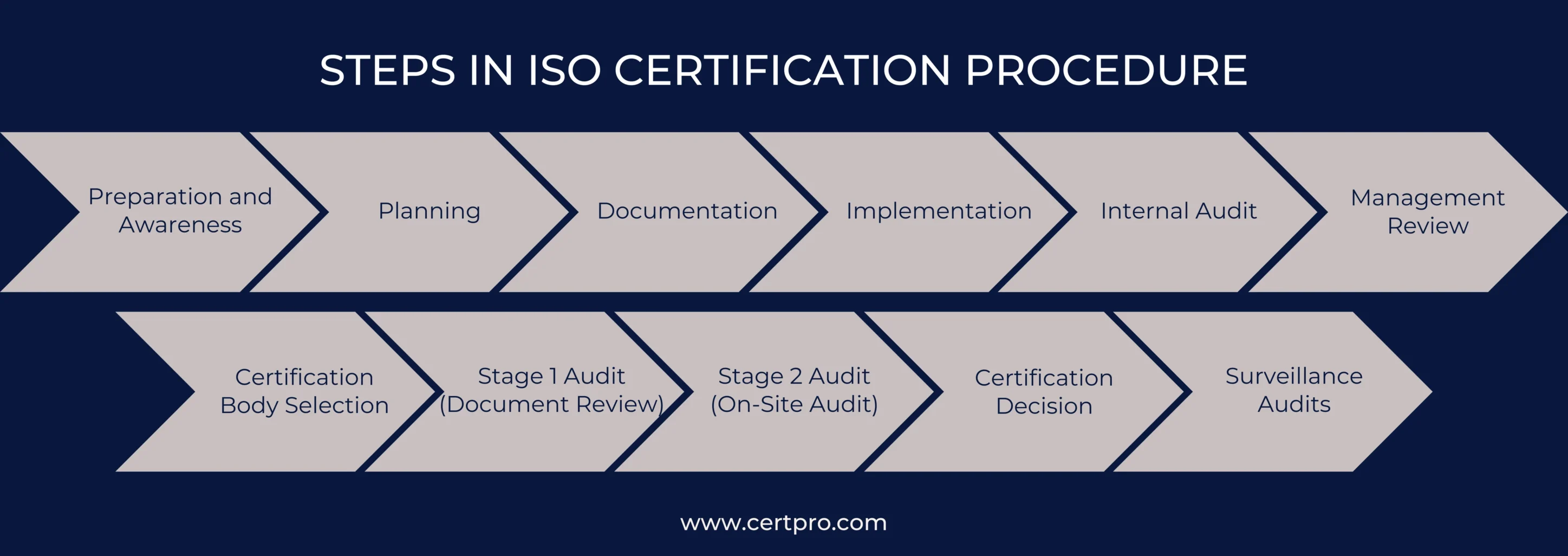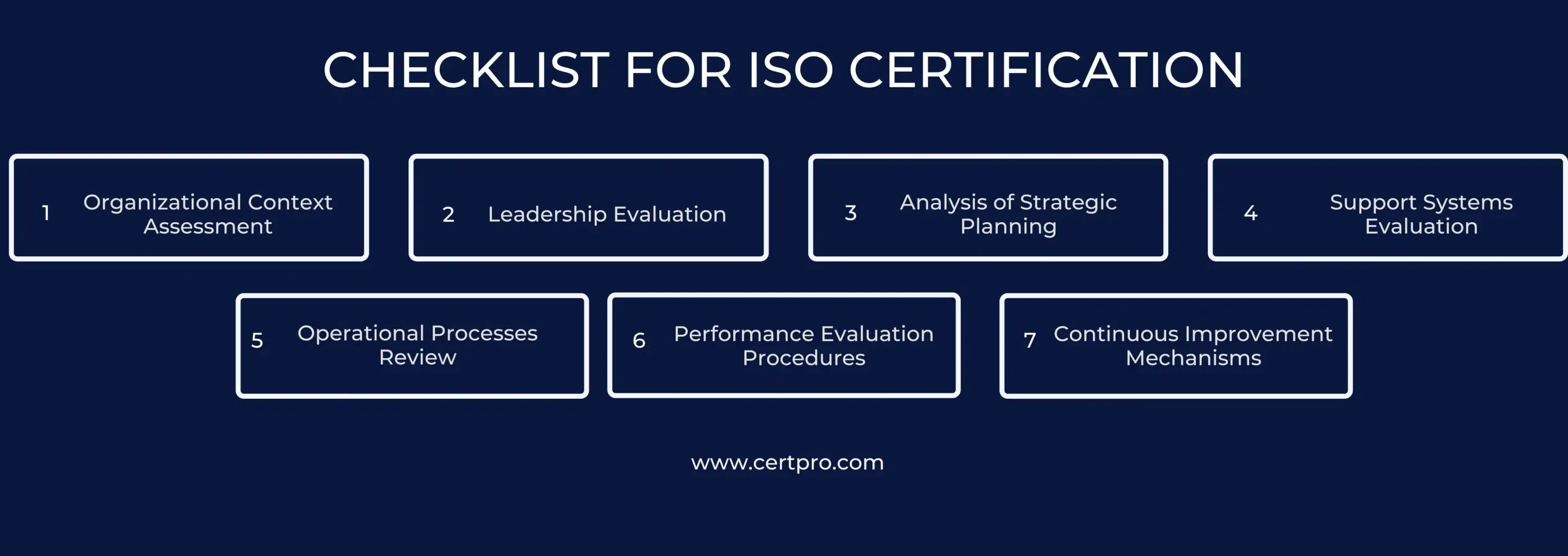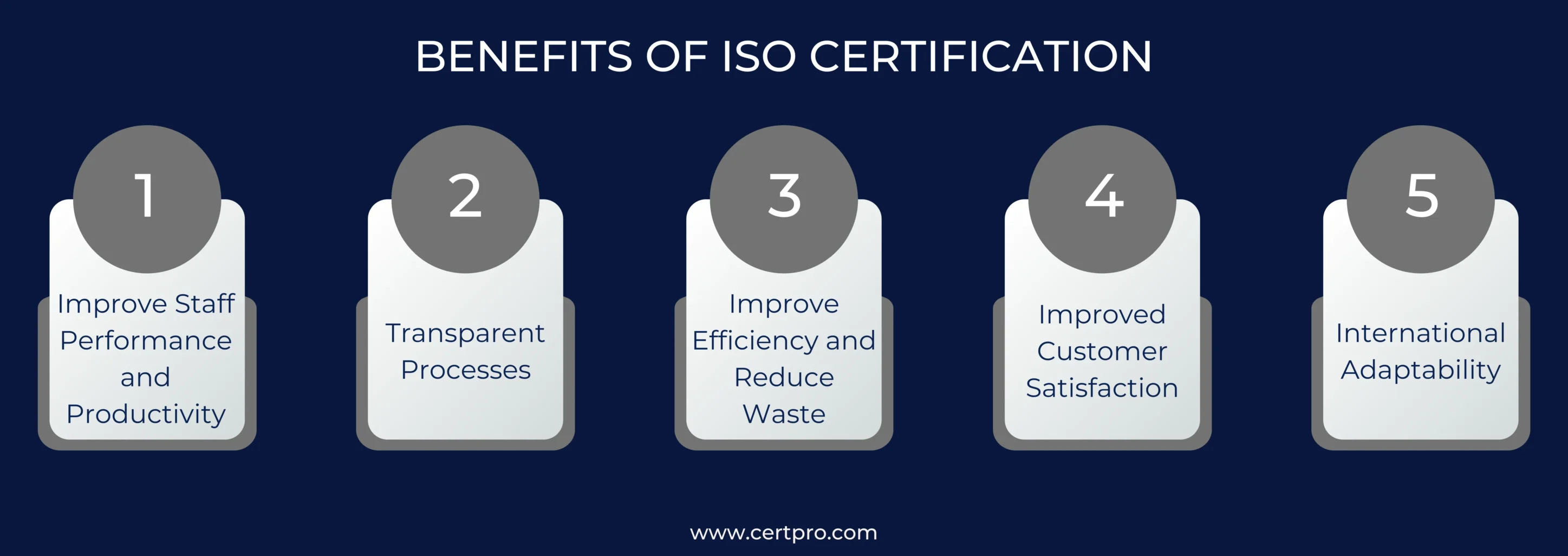INDIA
iso certification in INDIA
In today’s world, businesses are not restricted within the boundaries of countries or continents. Companies aim to grab the global marketplace through their services or products. Therefore, ISO certification is becoming more relevant and necessary for organizations. International Organization for Standardization (ISO) certification creates trust among stakeholders and customers. It validates that the organization complies with global quality assurance, manufacturing, and business standards. Thus, ISO certification in India validates the requirements of businesses related to quality process standards. In addition, ISO is a non-governmental organization that maintains the quality of the systems’ products, services, and efficacy. In the mid-20th century, ISO was formed for international cooperation and organization. It has 23,000 published standards applicable in 164 countries. Hence, organizations are obtaining ISO certification to prove their quality and standards to the world.
In addition, ISO certification improves international trade by ensuring product and service quality. The certification aims to enhance industrial welfare throughout the world. Additionally, ISO certification in India increases the level of security for customers and employees. Thus, it is essential to understand the importance of ISO certification in India. It can help you optimize your business practices and seize opportunities.
Why ISO Certification in India?
ISO certification in India signifies that the organization follows an international standard. Therefore, it helps instill confidence in customers and partners that the organization maintains high-quality services. Again, it shows the organization’s commitment to customer satisfaction and production. In some cases, ISO certification is mandatory for developing business partnerships. In the Indian market, ISO certification ensures the quality of services and adheres to regulations. Therefore, ISO certification provides a competitive edge and opportunities in the global market.
Moreover, ISO certification in India enables international trade and business growth. Aligning with ISO standards streamlines the operation process, helping reduce the cost of services and increasing efficiency. Therefore, customers benefit from the assurance of consistent, high-quality products and services.
Furthermore, it is essential to understand and navigate the certification process. The certification improves your organization’s operational excellence, elevates access to the global market, and provides competitive advantages. Thus, read the page carefully for more details on how to get ISO certification in India.
UNDERSTANDING ISO CERTIFICATION IN INDIA
ISO certification is a stamp of approval. It signifies that an independent firm has verified your organization’s internal systems. In addition, the process ensures that the organization’s manufacturing processes and services meet global standards. More interestingly, ISO standards apply to quality management, cyber security, and environmental sustainability. Thus, the primary objective of ISO standards is to improve efficacy. It reduces risks and delivers quality services and products. Therefore, ISO certification shows operational excellence in organizations. It empowers businesses to develop a robust framework that aligns with the standards. In addition, it is formal approval that your organization meets the established requirements. Thus, it enables strict adherence to global guidelines that enhance the product’s dependability. The global acceptance of ISO certification enables businesses to access the international market. It offers a competitive edge and ensures customer satisfaction, retention, and acquisition.
Hence, ISO 9001 certification specifies the organization’s commitment to offering quality services. ISO 27001 provides an information security framework. ISO 14001 ensures the organization’s environmental responsibilities and emphasizes sustainable growth.
Related Links
SOC 2 in India
ISO 27701 in India
GDPR in India
ISO 27018 in India
HIPAA in India
CCPA in India
PIPEDA in India
ISO 17025 in India
ISO 13485 in India
CE Mark in India
GDP in India
GLP in India
ISO 9001 in India
ISO 14001 in India
ISO 45001 in India
ISO 22000 in India
HACCP in India
ISO 22301 in India
ISO 21001 in India
ISO 41001 in India
ISO 20000-1 in India

STEPS IN ISO CERTIFICATION PROCEDURE IN INDIA
Preparation and Awareness: The first step is understanding the precise ISO standard for your industry. It will help to recognize the requirements, advantages, and implementation procedures.
Planning: A thorough plan should outline the procedures that align with the ISO standard. It should also establish a timetable for implementation and assign tasks.
Documentation: Create the necessary documentation, including policies, procedures, work instructions, and records. It ensures they meet the ISO standard’s criteria.
Implementation: Implement the procedures and processes documented throughout your organization. Therefore, the process performs necessary adjustments for successful implementation.
Internal Audit: An internal audit to assess the effectiveness of the implemented processes. It identifies non-conformities, addresses these issues, and makes the necessary improvements.
Management Review: This assessment of the ISO management system’s progress, efficacy, and applicability determines the vulnerabilities within the organization.
Certification Body Selection: Select a recognized certification body for the external audit. The certifying body will examine the procedure to understand the certification preparedness.
Stage 1 Audit (Document Review): The process examines the procedures to ensure adherence to the ISO standard.
Stage 2 Audit (On-Site Audit): In this process, an on-site audit is performed to verify the implementation of your ISO management system. They assess how well your processes align with the standard’s requirements.
Certification Decision: The certification organization grants certification based on the audit results. You will be given an ISO certificate if your company complies with the standard requirements.
Surveillance Audits The periodic audits confirm the compliance status. It is performed typically once a year.
Working closely with your chosen certification bodies helps you adhere to their rules, which are crucial throughout the procedure.

ISO CERTIFICATION PROCESSING TIME
Achieving ISO certification in India is a lengthy process that lasts at least three to six months. It focuses on implementing specific procedures linked to chosen standards. Companies must build and maintain these processes for a set time before receiving the initial audit. Therefore, consider Certpro, an ISO consultant in India, to assist your organization. Businesses must follow the necessary methods to obtain ISO certification in India. The certification is valid for three years and is subject to annual audit requirements. Thus, understanding ISO in India involves collaboration with skilled ISO consultants. It ensures efficiency and compliance while successfully minimizing ISO certification costs.
CHECKLIST FOR ISO CERTIFICATION IN INDIA
Utilize the following audit checklist to verify ISO standard compliance:
Organizational Context Assessment: It helps to understand the organization’s motive for certification. Therefore, it analyzes external and internal influences and stakeholders’ expectations. It evaluates compliance opportunities and hazards.
Leadership Evaluation: Analyzing how well the organization’s leadership guides the certification process. Furthermore, it analyzes how leaders create an environment for ISO standards. In addition, leaders encourage and guarantee that strategic choices align with ISO specifications.
Analysis of Strategic Planning: Strategic planning ensures compliance with ISO standards. It examines how strategic planning incorporates ISO standards. Therefore, it ensures that ISO certification considers resource allocation and risk management.
Support Systems Evaluation: It verifies the existence of support systems in ISO compliance. In this regard, ensure that training, resources, and framework effectively uphold the standards.
Operational Processes Review: This process evaluates the operational procedures in detail. It ensures they adhere to ISO requirements and encourages conformity to the standards.
Performance Evaluation Procedures: Implement continual performance evaluation techniques in compliance with ISO standards. Develop and implement systematic techniques for assessing and monitoring organizational performance over time.
Continuous Improvement Mechanisms: Integrate measures to encourage constant development per ISO principles. Implement initiatives that foster continuous improvement of processes, products, and systems—demonstrating a commitment to long-term excellence and ISO compliance.

HERE ARE THE MOST POPULAR ISO STANDARDS IN INDIA
Many different ISO Standards are available. Organizations need help to select the appropriate certification. Therefore, the organization must follow the industry-specific certification process for superior results. Some popular ISO standards are mentioned here to help you learn more about their scope and impact.
ISO 27001: The standard’s goal is to better secure information technology and safeguard business assets. The businesses must follow policies, processes, plans, and documents for compliance. Therefore, the standard offers a sensitive data protection framework. The certification showcases the organization’s data protection measures.
ISO 9001: It is the most widely used standard in the ISO family. Therefore, ISO 9001:2015 is one of the famous standards. Since its initial distribution in 1987, it has been updated often, almost without fail. The basic details of setting up a Quality Management System (QMS) to provide high-quality goods and services. In addition, it is client-focused and emphasizes ongoing development and high-level administrative practices. The standard, updated in 2015, more prominently highlights the threat on the board. It is non-exclusive and applicable to any association in any field.
ISO 14001: It integrates several criteria, such as ISO 9000. The most well-known of the family, ISO 14001:2015, is the only one that guarantees an association. Additionally, it establishes the requirements for an Environmental Management System (EMS). It offers services based on the continuous improvement of the Plan-Do-Check-Act (PDCA). Furthermore, the certification ensures that industrialization does not destroy the environment.
ISO 22000: This standard may benefit any firm involved in the food chain. It focuses on creating and executing a management system for food safety. The standard requires businesses related to eateries of all kinds, food makers, and food delivery services. In addition, it can be used independently or in conjunction with ISO 9001. Therefore, companies need to follow the laws and regulations of food safety. In addition, the standard offers businesses a framework for continuously improving a food safety management system. Documenting these food safety management procedures is essential.
ISO 42001: Organizations may oversee and manage AI-based systems with the help of the ISO 42001 certification. The need for AI management systems is growing due to the growing usage of AI in the healthcare and financial industries. Furthermore, ISO 42001 is becoming essential in managing and handling AI systems. It might expand your company’s prospects. Therefore, the certification may demonstrate your credibility and dependability while using and implementing AI—furthermore, implementing a system that benefits society and individuals. Additionally, the certification ensures that the AI systems are free from bias and discrimination.
BENEFITS OF ISO CERTIFICATION IN INDIA
ISO certification in India ensures that products and services meet international quality standards. It also gives businesses a competitive edge and can boost customer satisfaction. Furthermore, ISO ensures that protocols are adhered to accurately, reducing the risk of a company failing. The ISO certification process benefits businesses by fostering development, legitimacy, and operational excellence.
Adopting ISO international standards can provide several advantages. Here are only a handful of the possible benefits:
- Improve Staff Performance and Productivity: The certification process formalizes the operational process. Therefore, it helps develop a documentation process and protocol in emergency response. Thus, the employees can identify their duties and responsibilities in the process.
- Transparent Processes: It allows the organization to maintain proper documentation and records. Thus, it helps to recognize the risks and vulnerabilities in an organization.
- Improve Efficiency and Reduce Waste: Tasks can be completed more swiftly. Thus, improved protocols and guidelines save costly errors and delays. Therefore, adopting standards keeps your company on the cutting edge and saves years of effort and experience.
- Improved Customer Satisfaction: ISO certification in India generally offers better customer experiences. Additionally, the standards concentrate on identifying and satisfying clients.
- International adaptability: Implementing ISO certification in India allows your business to expand. It offers a competitive edge in the global marketplace.
Ultimately, obtaining ISO certification in India gives businesses credibility in foreign markets. It maintains ethical and sustainable business practices that improve operations.

Industries that Benefit from ISO Certification in India
It is a vast certification process that requires external certification bodies. Therefore, manufacturing industries require ISO certification for employees and customers. It ensures the safety of the manufacturing employees and the quality of the products. Thus, automotive manufacturers, semiconductors, electronics manufacturers, and construction businesses require ISO certification. The primary goals of accreditation are to guarantee product quality and employee safety. In this context, ISO 9001 confirms product quality and operational processes.
Another popular certification is ISO 27001. It helps maintain the organization’s information security standards. It applies to the IT and software industries to maintain safety and security. In addition, ISO 27001 is used in the banking and financial industries to ensure data privacy and prevent data breaches. In the telecom industry, ISO certification offers a safe data handling process and improved services. Some government agencies utilize ISO 27001 for managing and handling sensitive data. It enables data security and availability in emergencies.
CERTPRO: EMPOWERING YOUR BUSINESS TO ATTAIN ISO CERTIFICATION EFFORTLESSLY
Enforcing ISO certification in India demonstrates your company’s legitimacy in the global market. Therefore, CertPro can assist your business in implementing ISO standards. We provide our customers with superior services in executing the standards. In addition, our professionals will help you establish a robust certification framework. Moreover, CertPro also customizes the standard to the company’s particular requirements. Again, we will provide complete services during certification and surveillance auditing.
Consequently, if you want an affordable and efficient auditing firm, contact CertPro. We are a reputed ISO consultant in India. Choosing CertPro for your ISO certification simplifies the process.
FAQ
What is ISO Certification?
The process through which a third-party certification authority confirms that a company’s management system, processes, goods, or services comply with the requirements set out by the International Organization for Standardization (ISO) is known as ISO certification, also known as ISO registration.
Which ISO Standards are Relevant in India?
The ISO 9001:2015 standard for quality management, ISO 14001:2015 for environmental management, ISO 27001:2013 for information security management, and ISO 50001:2013 for energy management are among the ISO standards that are applicable in India.
How Can a Company Get ISO Certified in India?
A corporation must complete a number of processes in order to get ISO certified, including certification preparation, applying ISO standards, going through internal audits, choosing a certification body, and concluding external audits.
Who Grants ISO Certification in India?
Accredited certification bodies in India issue ISO certification. The Bureau of Indian Standards (BIS), the National Accreditation Board for Certification Bodies (NABCB), and several private certification companies are a few well-known institutions.
What Are the Benefits of ISO Certification in India?
Increased reputation, better market access, operational efficiency, customer trust, regulatory compliance, and alignment with sustainable practices are just a few advantages of ISO certification.
IT COMPLIANCE IN 2024: ESSENTIAL TRENDS AND BEST PRACTICES
IT compliance is essential for every organization to secure the integrity and accountability of data. The process also helps develop the business and enhance its profitability. In today’s digital era, IT compliance has more than just a regulatory checkbox. It plays a...
POLICY MANAGEMENT SYSTEM: ESSENTIAL TOOLS FOR AUTOMATION AND SIMPLIFICATION
Growing businesses indicates that you become a master in your field and accurately manage all business-related policies. However, managing company policies can be daunting significantly when your business expands. Here, an effective policy management system can help...
CYBERSECURITY AUDITS: A STEP-BY-STEP GUIDE TO CONDUCTING ONE
In recent years, data breaches have become headlines in many large companies. Technological advancements have made the hacking process more strategic and complicated. Therefore, organizations must consider the cybersecurity audit seriously to avoid breaches and have a...












